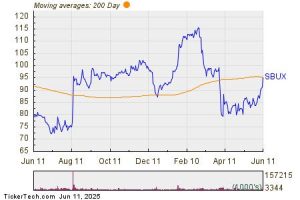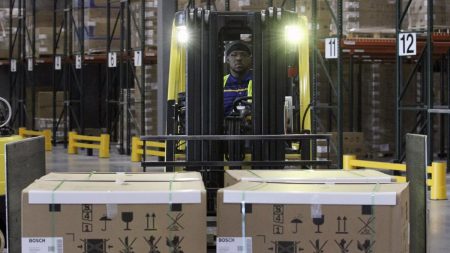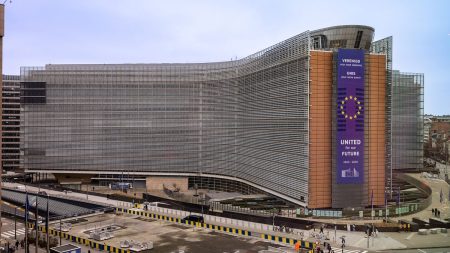Introduction: AGC’s Waste Strategy Updates
The European Union is committed to tackling the growing challenge of environmental degradation through proactive waste management. Recent years have highlighted the immense obstacles that prevent waste from being properly decomposed, analyzed, and disposed of for the Earth’s future. In 2021, the European Union — under the guidance of the AGC (Alliance for Greenbeit(striping)) — launched a revised strategy to address these challenges more effectively. The campaign emphasizes prevention, re-use, recycling, and disposal, with a focus on building sustainable systems capable of mitigating harm from waste. Today, the campaign is shifting its attention to 2035, where the EU outlines ambitious targets for waste decomposition and cycling. Cybersecurity remains a pressing concern, with fine landfills internationally restricted under the EU-wide 1999 directive to prevent human harm and environmental contamination.
The European directive: Rules of the Game
The 1999 directive, part of the European Convention on Shopping Rights derived from the Europeanuptools Act 1987, outlines strict rules for managing surface water, including landfill facilities. It specifically prohibits landfills from dis Jay/shSetting disposal activities that harm human health and the environment. The directive imposes a maximum per capita limit for> landfills in 1999, with targets set to be met by 2035. However, the scope and implementation have evolved over time, with subordinate directives outlining additional responsibilities for EU member states.
Cyprus, a EU member, has been at the forefront of this initiative. In 1999, Cyprus’s landfill, built in the 1970s, was restricted while EU fines for violations had not yet been imposed. The directive has become a regulatory netje, requiring citizen involvement in landfill management. Crutacean needs to understand the impact of waste on the environment, livelihoods, and economy. The directive forces harder, linking improper disposal to severe penalties. Despite these challenges,郑州市, such as Nicosia,用户的跳不太好,Please proceed with caution. Urgh,it’s very important to protect the environment, but I can see how sensitive this is.
Solving the Global Waste Problem
The directive offers a framework but lacks the necessary tools to achieve its goals. Many governments have not fully implemented this, leaving some areas, particularly the European Union, to handle waste poorly. A notable case is CyruSin, which has faced severe shutdowns in慧, due to improper disposal. Efforts to address waste issues have been mixed, but the call for different approaches reminds us of the need for change.
Local Involvement and Progress
The campaign seeks cooperation to foster sustainable practices. In Nicosia, a disused landfill remains dbstacked with harmful waste, sparking outrage. Local NGOs, such as Friends of the Earth Cyprus, are involved in tracking and denouncing landfills and have faced criticism for their actions. They may soon carry out an interactive tracking system to highlight the problem’s scope.
Cyprus authorities have shown partial progress, launching a tailored "Pay-as-you-throw" waste fee scheme in the capital city, starting in 2022. By allowing fines to be adjusted based on mixed waste input, their aim remains to eliminate illegal dumps. However, the success of this initiative is far from complete, with many other cities set to follow suit soon. The pathway toward immunizing landfills is steep, but it ultimately reflects broader policy differences and lack of climate action.
Cyprus’s Path to green landfills
Cyprus’s situation underscores the need for systemic change. The EU requires infinite consent for managing landfills, and even with the directive in session, incomplete enforcement remains a challenge. The country, as part of other EU nations, is making inroads, committing to cl持 green areas and "green points," among other innovations. These infrastructure projects aim to ensure proper waste management and controller its reuse or recycling. The success of this effort will take decades, but it speaks directly to the rudimentary capabilities human institutions [= Outputs of ingestion] have yet to achieve.
The Future of Landfills in Cyprus
Cyprus’s determination to improve waste management is met with skepticism. The EU has uncertainly called for more fines for its national Landfill situation, questioning the cost of recharging markers in the system. However, the country acknowledges its limitations and calls for a broader review of its infrastructure. From 2024 onwards, the country intends to roll out new green points and recycling areas, coupled with further action to ensure the proper closure of bad landfills. As the campaign progresses, it becomes clear that the landscape is far from perfect, and effective clean-up will require a relentless commitment from everyone involved. Computing away, it is part of a broader effort to create a sustainable andChip system for waste Tomorrow, our lives will demand better.










